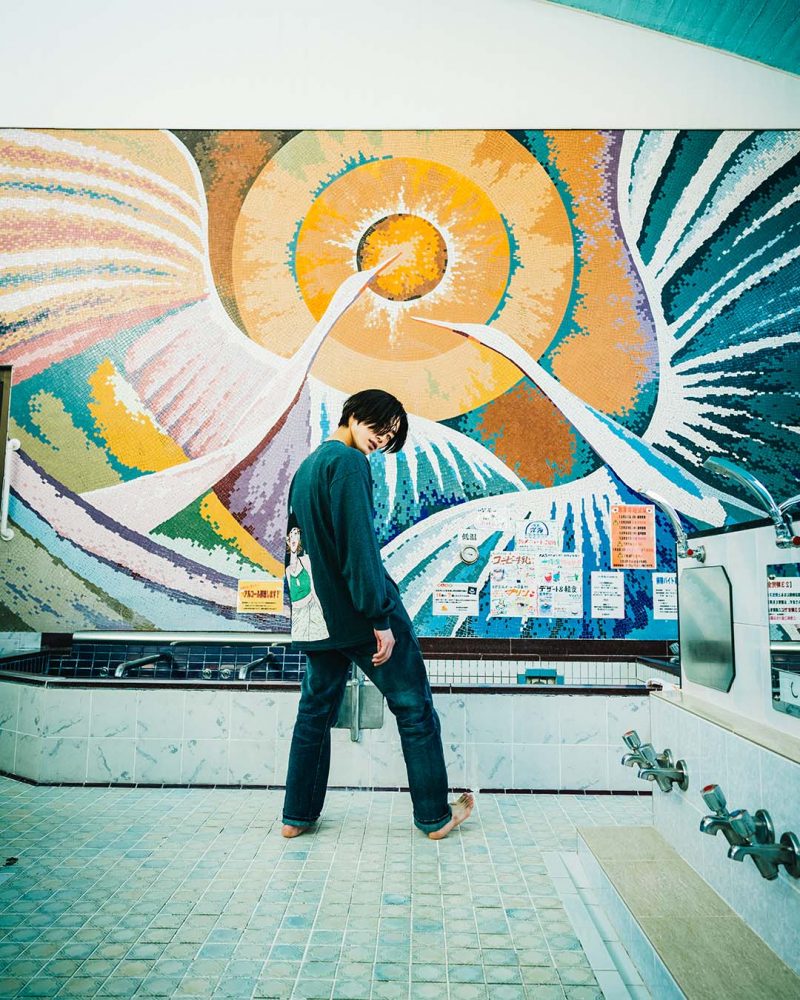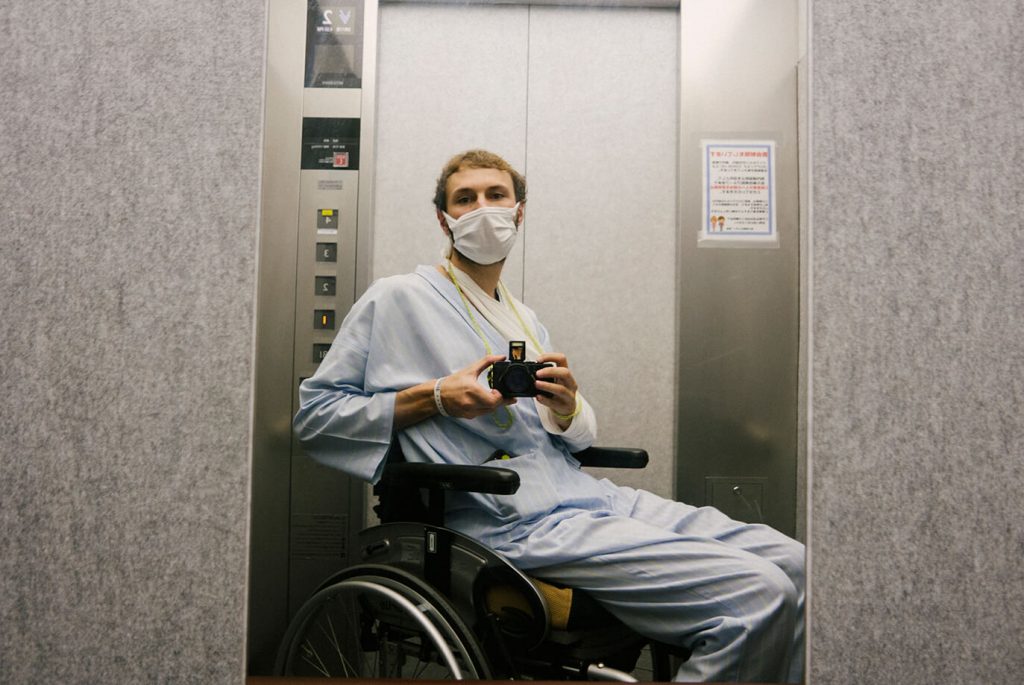
When you live in a foreign country, the idea of having any health problem is always scary. Especially, if you don’t know the language. Especially, if healthcare is expensive —more so if you are from a country where it’s completely free. Especially, during this pandemic time that has made hospitals even a more hostile environment. Especially, if it’s not the illness that finds you randomly, but you find it yourself while seeking for fun, with the guilt that this could entail.
Unfortunately, for the Tokyo-based French photographer Timothée Lambrecq or Timo (@moussti), this awful combination of fears became a reality when he suffered a bad snowboarding accident, more than 100 km from his home in Tokyo, more than 10,000 km from his country, France.
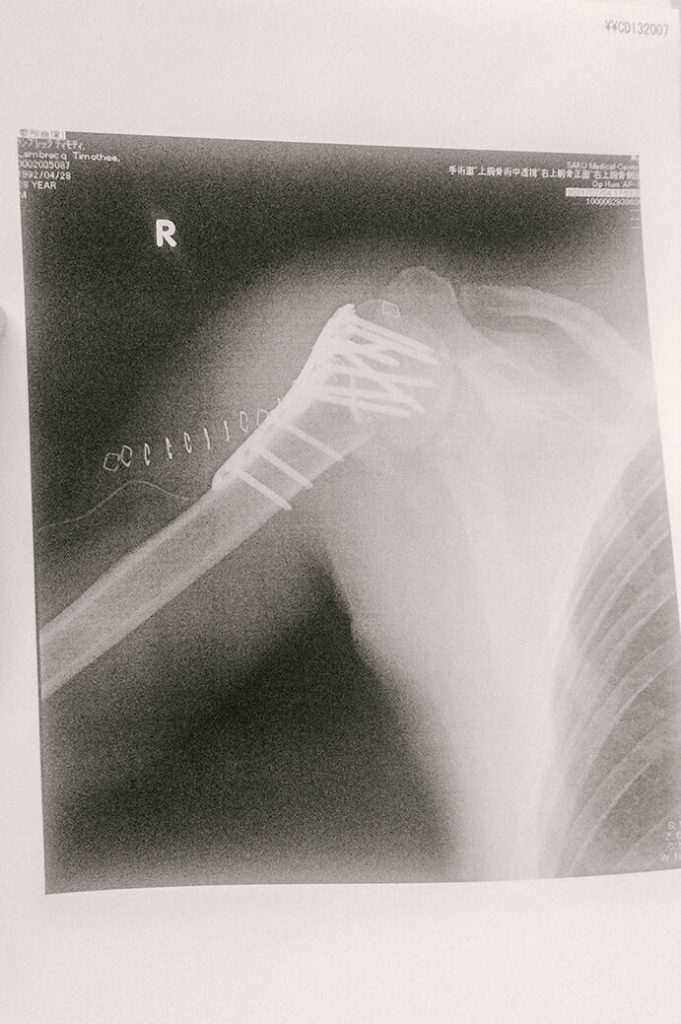
In the past two months, Timo has been hospitalised at three different hospitals, has undergone two very serious surgeries and has been completely isolated from his girlfriend and friends because of an extremely strict non-visit policy due to coronavirus. All of this while experiencing the biggest pain in his life, not being able to communicate properly because he only speaks a little Japanese, and growing a medical bill that he for sure would have never expected to be forced to pay.
As a photographer, Timo has been capturing this hard journey through some pictures, as much as his physical and mental pain allowed him. With this visual documentation, he is now preparing a fanzine to help with his medical costs. He has also been sharing his feelings with the world through social media, something that for us, his friends, has been crucial to keep communicating with him, as we weren’t allowed in real life.
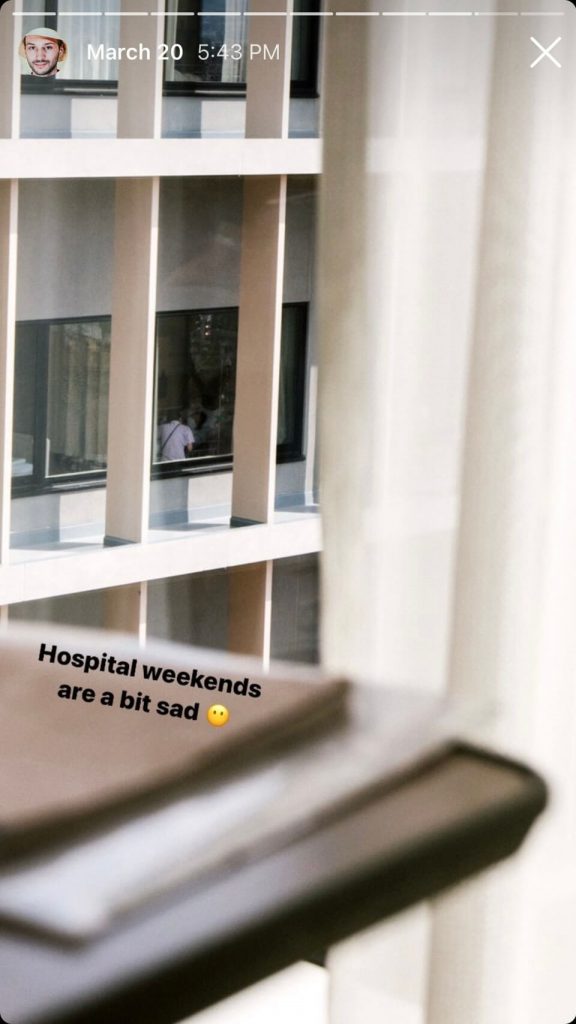
I asked Timo if talking about this experience and sharing some of the visual material he’s been creating could have a healing effect, as small as it would be. He thinks so. That is why I prepared this interview, which has made me feel closer to him than ever.
Luckily for Timo, this experience is temporary. With time, care and effort, he will get better and be discharged from hospital. Not everyone is this lucky. Not everyone has the opportunity to recover, to go to or stay in a hospital, or to have emotional support from loved ones. I hope his words can make us all feel also closer to all these people, too.
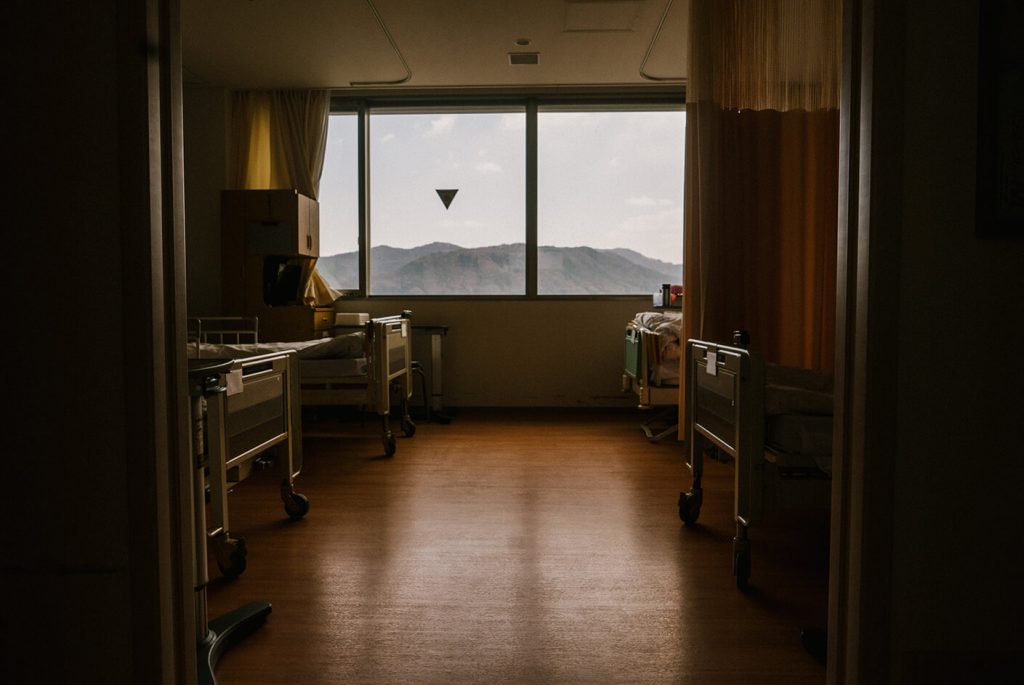
Chorareii: Hello Timo. I know it may be hard, you don’t need to give details, but could you summarize what happened to you?
Timo: I took a bad fall when doing a jump while snowboarding. I broke my hip and shoulder, got a compressed vertebra, and a cracked rib.
I used to do a lot of extreme sports before, so this was not my first jump. I know exactly what went wrong and what I should have considered before hitting the jump.
Of course I regret it but it’s done. I’m trying to be at peace with the incident, especially since the result could have been way worse.
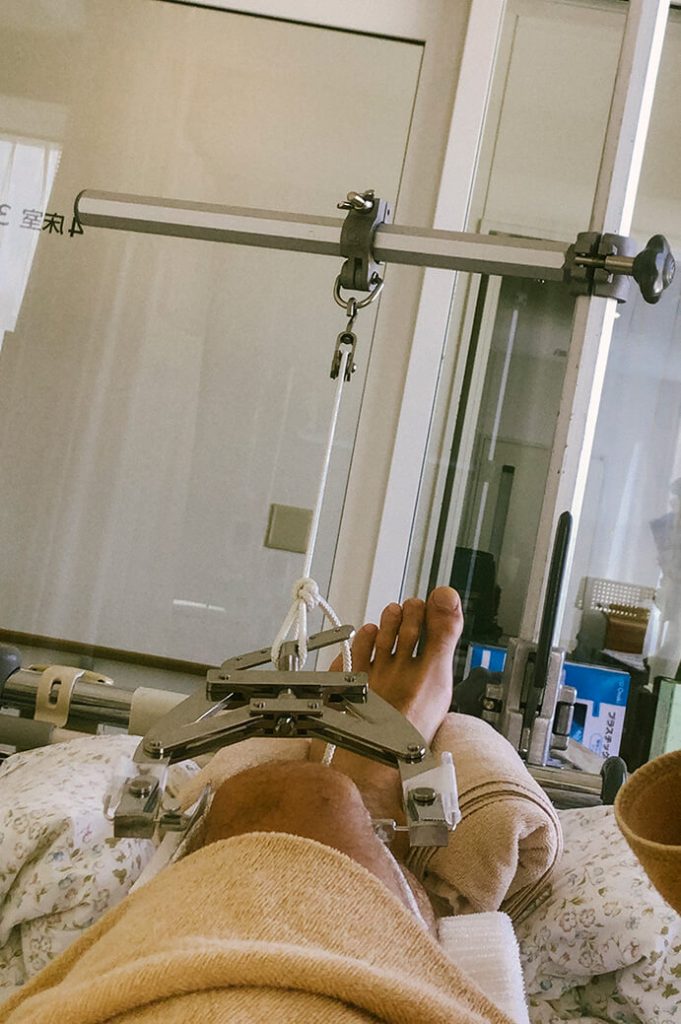
You are now in Tokyo, where you normally live, but what has been your journey?
The accident took place in Nagano prefecture on February 28th. I was evacuated to a hospital nearby, the most painful journey of my life.
One member of the staff from the emergency room was able to speak English. She gave me painkillers, explained to me the importance of the injuries, and told me that I would have to undergo two major surgeries.
After the success of the surgeries, I spent ten or more days lying on my back in bed, without much ability to do any movement and no possibility to get up.
Then, slowly, I was able to get on a wheelchair. They transferred me to the next hospital, as the first one was only for emergencies and surgery. I stayed in this second hospital until I was able to be transferred to a hospital in Tokyo, around one month later than the accident.
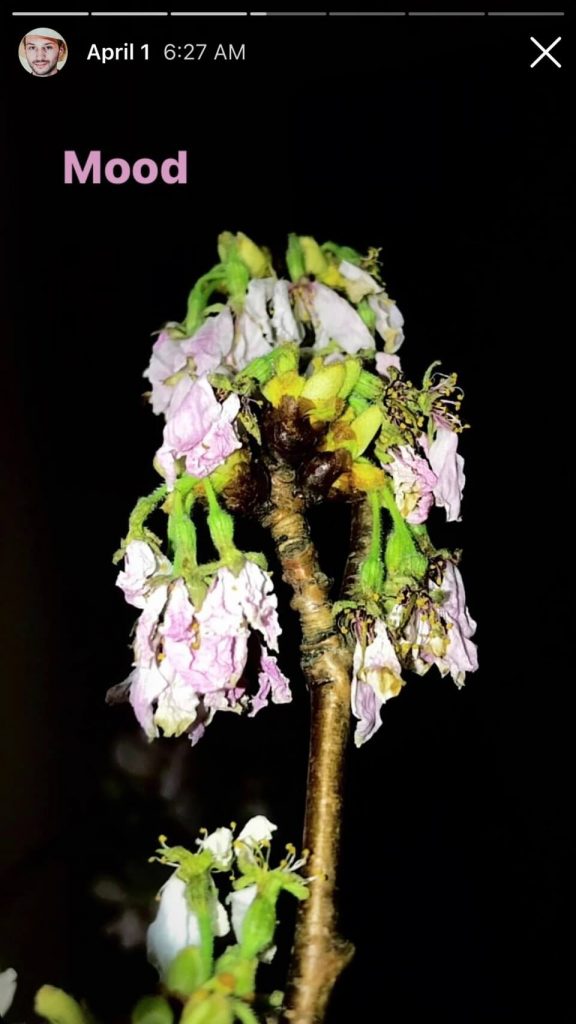
Can you explain the situation from which you are answering these questions?
I’m currently writing from my pricy hospital room. I’m on my bed, which has also been my office, living room, and most important place for me recently.
I’m for now alone in a private room, a luxury I was forced to pay by the hospital when transferred to Tokyo. It was painful to see the price per night, but I have to say I quite enjoy having privacy after spending weeks in a tiny shared room.
I don’t know exactly how long I’ll stay in the hospital, I’m hoping to get out in about a month but it’s been tricky to understand with certainty these things.
Right now my feelings are getting a bit less complex than the previous weeks. I’m finally back in Tokyo and I’m starting to do some intense physical therapy which gives me less time and energy to think too much.
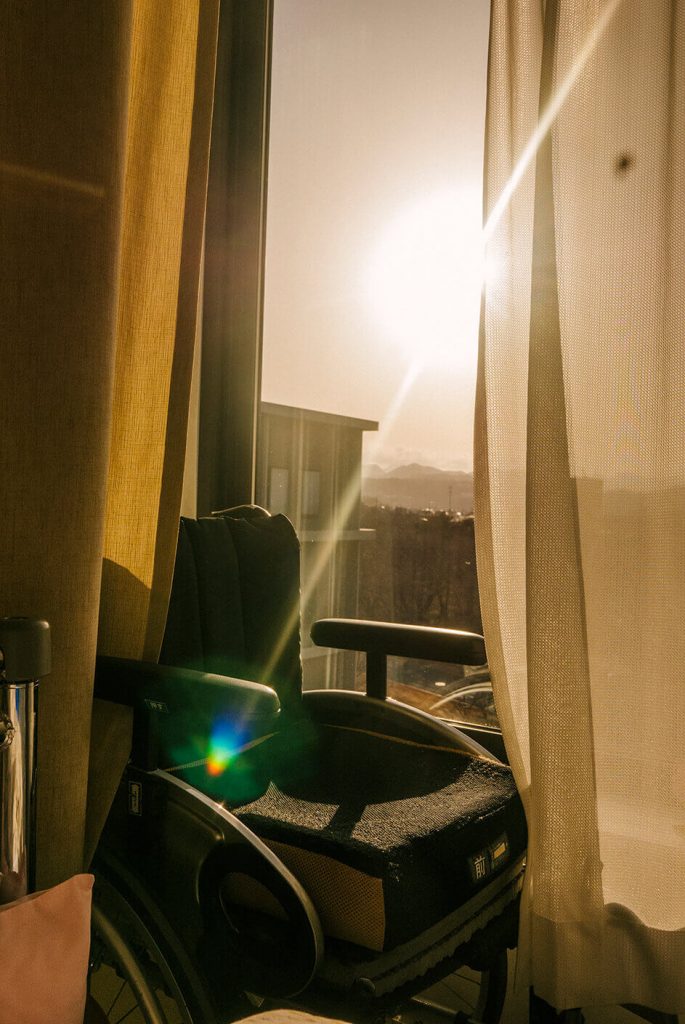
There are several concepts that I would like to explore with you. I’ll just say them and you can explain whatever you want about each of them. The first concept is pain.
Oh dear, I haven’t experienced so much pain in my life! I’ve broken a few bones before. When I was little, I spent 24 hours with a double fracture in my arm without saying anything because I didn’t want to go to the hospital.
From the ski resort until the very first emergency surgery, there was literally no position where my leg would feel some relief. My hip joint was broken and dislocated. It was so intense … I wish that to anybody.
After the surgery, I had painkillers. However, painkillers in Japan are not strong [compared to Europe]. I guess I’ve gradually started to get used to the pain.
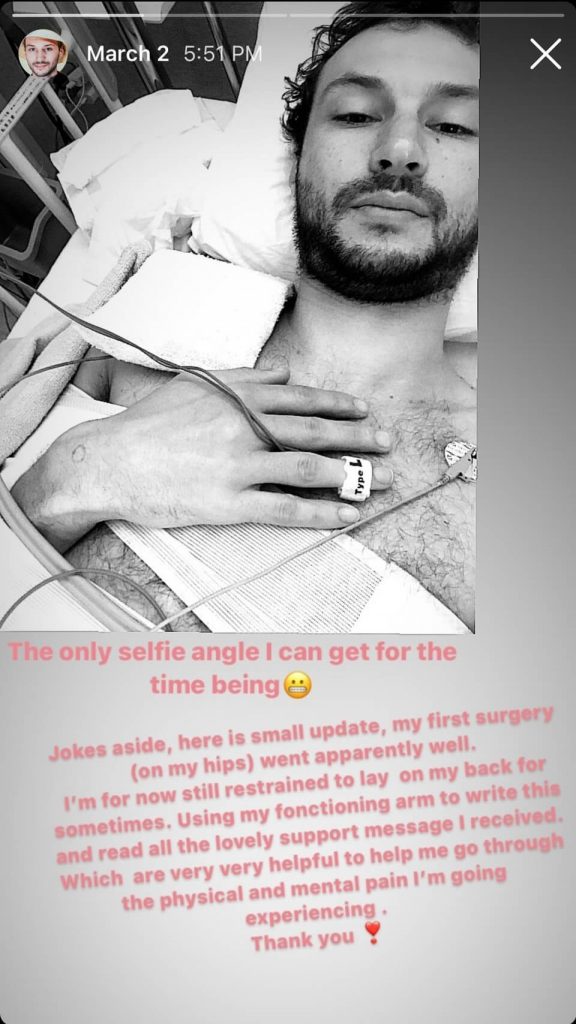
The second concept would be isolation.
Because of the COVID regulations, I’m not able to have any visits in the hospital. Forced isolation is weird.
In my regular life, I like to spend time alone. It’s important for my balance, but so is being with people; people I’m close to, people I work with, or people I’m meeting for the first time. These people contribute to who I am.
My partner Mathilde was with me during the incident. They let her in the emergency room the first night for a few minutes. Then I could see her in the corridor for a few seconds on the way to surgery. More than one month later, when I got transferred to Tokyo, she was able to welcome me. That has been pretty much all the time we’ve spent together.
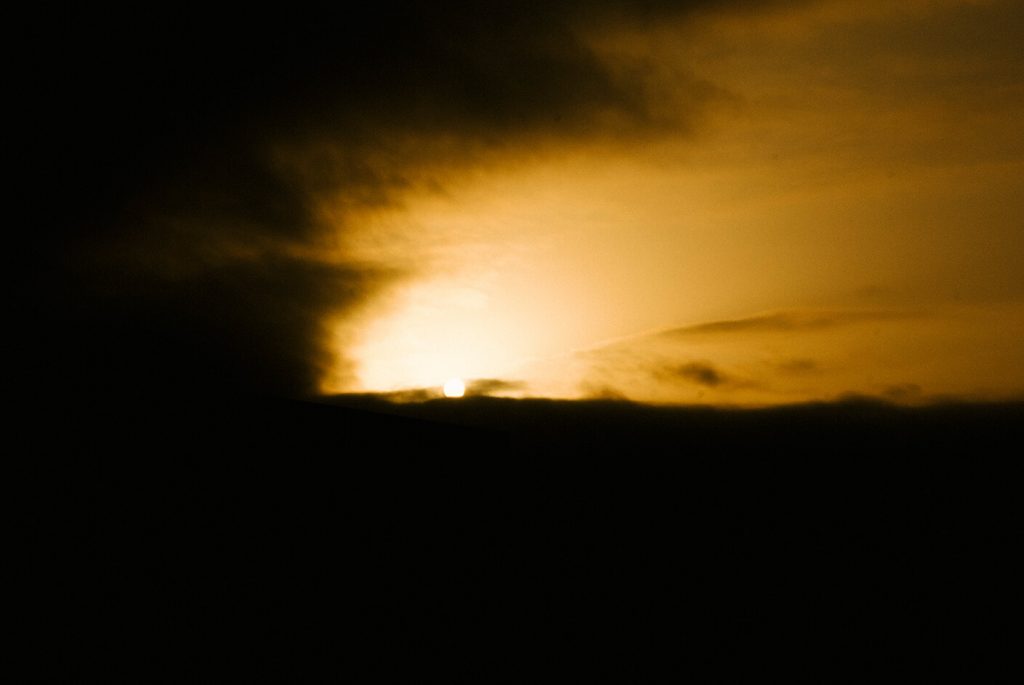
The rest of the time, I have been on my bed by myself or surrounded by unknown, noisy people behind the curtains. The only ‘social moments’ I get are with nurses or physical therapists —who usually don’t speak so much English —, or through social media. It has even been difficult for me to call friends due to the no-call policy in shared rooms, my schedule or my low energy.
I miss having a regular conversation, things to say, sharing good times. Sometimes I even feel scared because maybe I won’t be able to socialize anymore when I get discharged. Like, I won’t be used to it anymore, or have nothing to tell apart from my hospital life, which has been plain and boring. It’s probably just in my head, but it’s a thought I have.
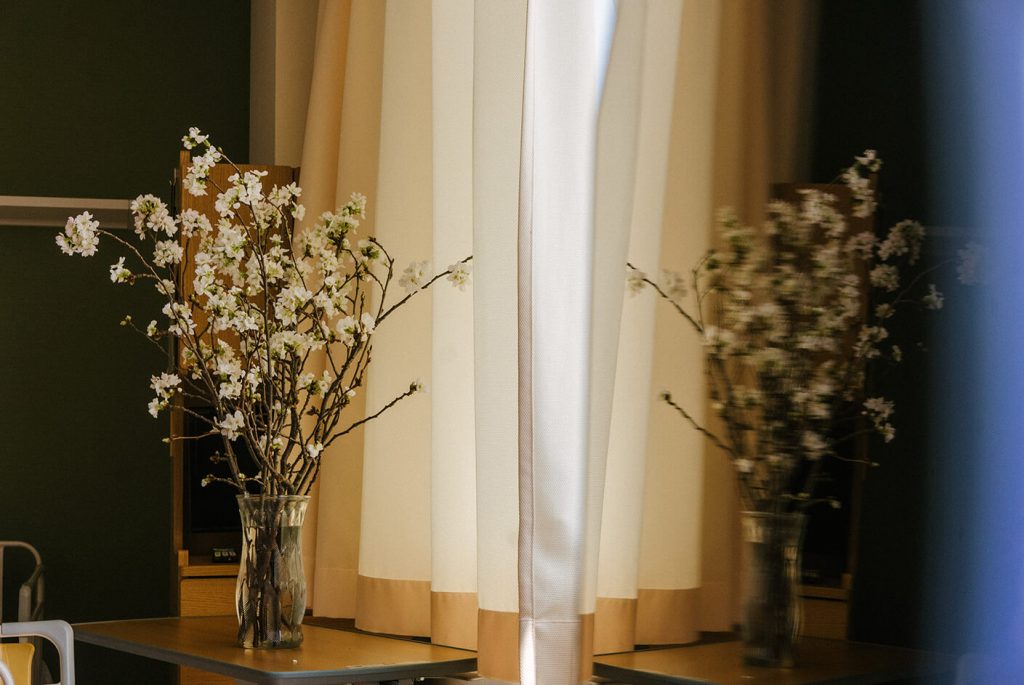
The third concept, time.
When you can’t move, stuck on your back, with super low energy, only being able to sleep 2 to 3 h a night, and with your phone as only connection to the outside world, time is SUPER SLOW.
The more sleep you get, the more movements you can do, the more energy you have to watch a movie, read a book …, the more you feel that time goes faster.
There is also the strict hospital schedule; dinner at 5.30 pm, sleeping time at 9 pm, wake-up time at 6 am. This makes time very organized.
I’ve kind of lost the notion of days and weeks. Weekends have been quite depressing; the hospital is more empty and life is even more slow. It just feels sad.

The fourth concept, uncertainty.
It’s scary, the unknown gives me a lot of anxiety.
It’s been tricky to understand the extent of my injuries, because of the language and because doctors themselves can’t foresee how they will heal in the long term.
I had to learn to take information as it comes and adapt to whatever I’m told, without trying to make too many plans or get expectations in my mind.
Right now as I’m writing this, the diagnostics are a bit more positive so I’m more optimistic.
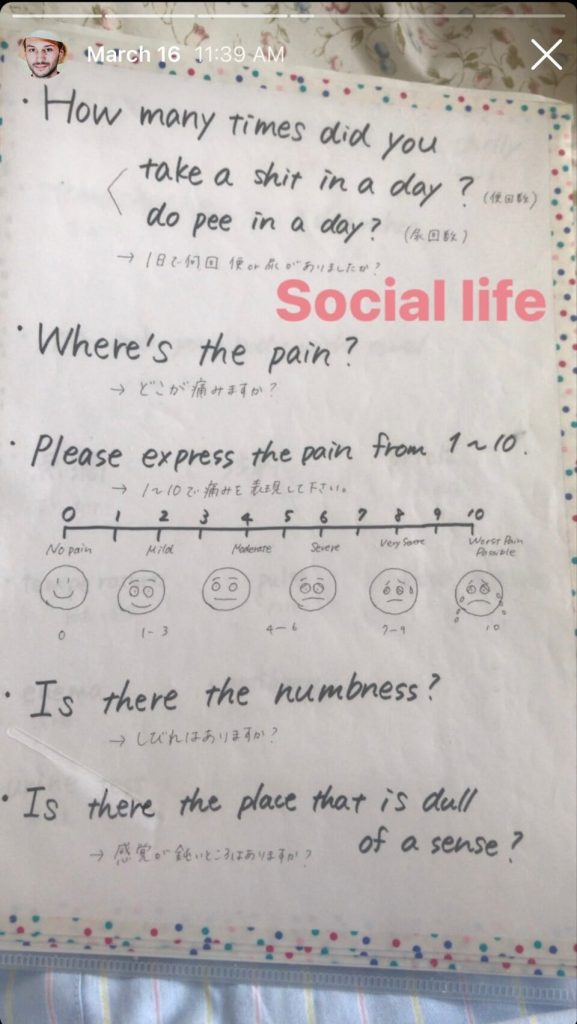
The fifth concept, strength.
Physical and mental strength are directly connected, that’s for sure. When I’m feeling down, I can feel it in my recovery too; more pain, less progress.
It’s hard to be mentally strong every day. Some days you have to accept that you’ll be sad and there is not much you or your friends can do about it. At least that’s what I’ve experienced
I have ups and downs. However, I can’t let down all the people waiting for me outside, so I try to keep the will power to the max.
What other concepts are defining this life experience for you? What feelings?
Challenge, fight, loneliness, sadness and the most important one, PATIENCE. Patience is probably the biggest lesson from this experience.
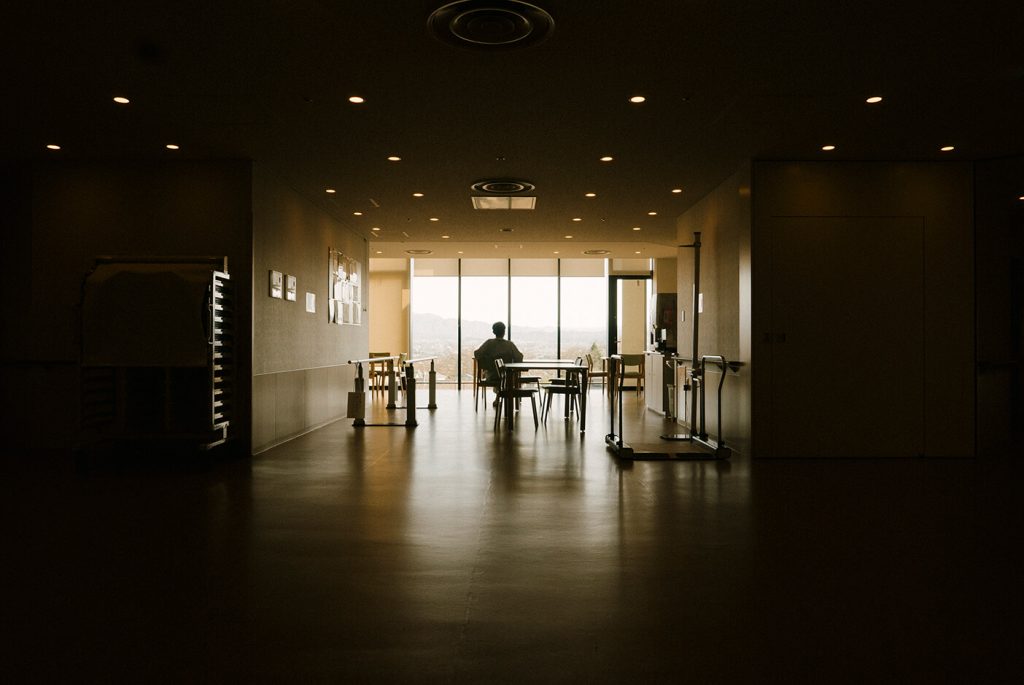
Tell me about the support you have received from your loved ones.
They have been sending messages, sending snacks and surprise packages, calling the hospital to arrange me some special meals … I have had a lot of support, sometimes from unexpected people. Without that support, I’d probably have no strength nor will power, to be honest.
At some point, receiving packages became my only hobby, the only thing that would bring me joy. I feel a bit weird about it because it’s just me who can enjoy it. It’s hard to express, I feel that I need to give love back, but I can’t now.
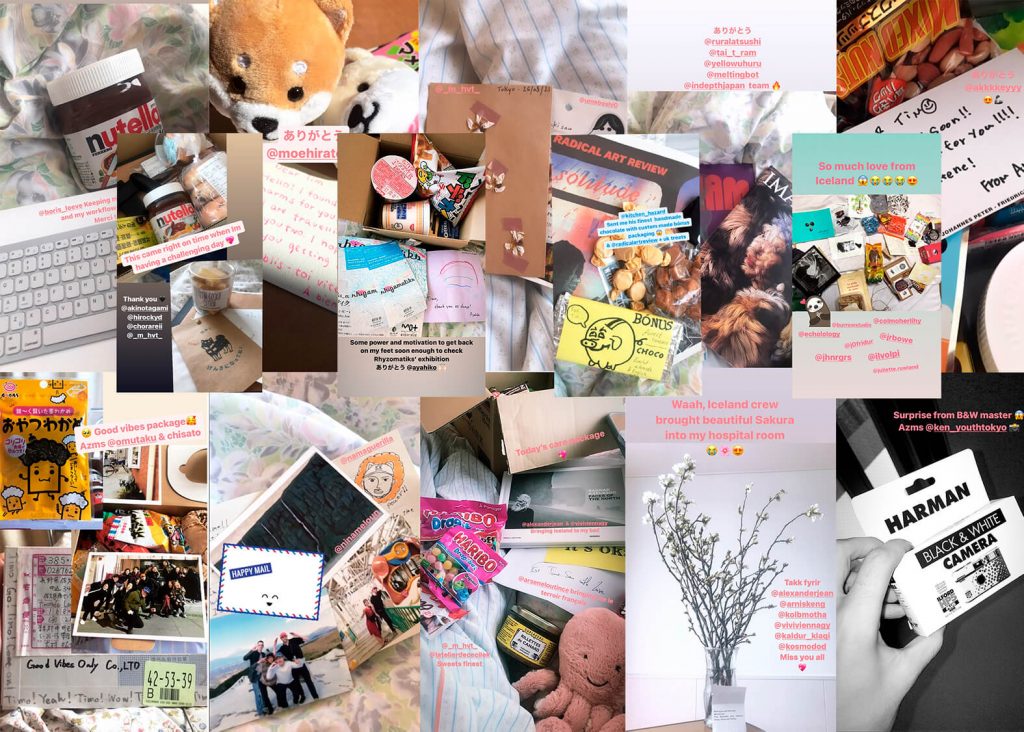
Many people have shared with me their personal experience in a similar situation. Usually it helps, but sometimes it brings frustration. I personally think every case is unique, not that some experiences are worse or easier than others, I just think they are quite personal.
I did receive very wise and great advice, kind words from lovely friends, and I will be forever thankful to everyone who’s been supporting me —with a gold medal to Mathilde, my partner!
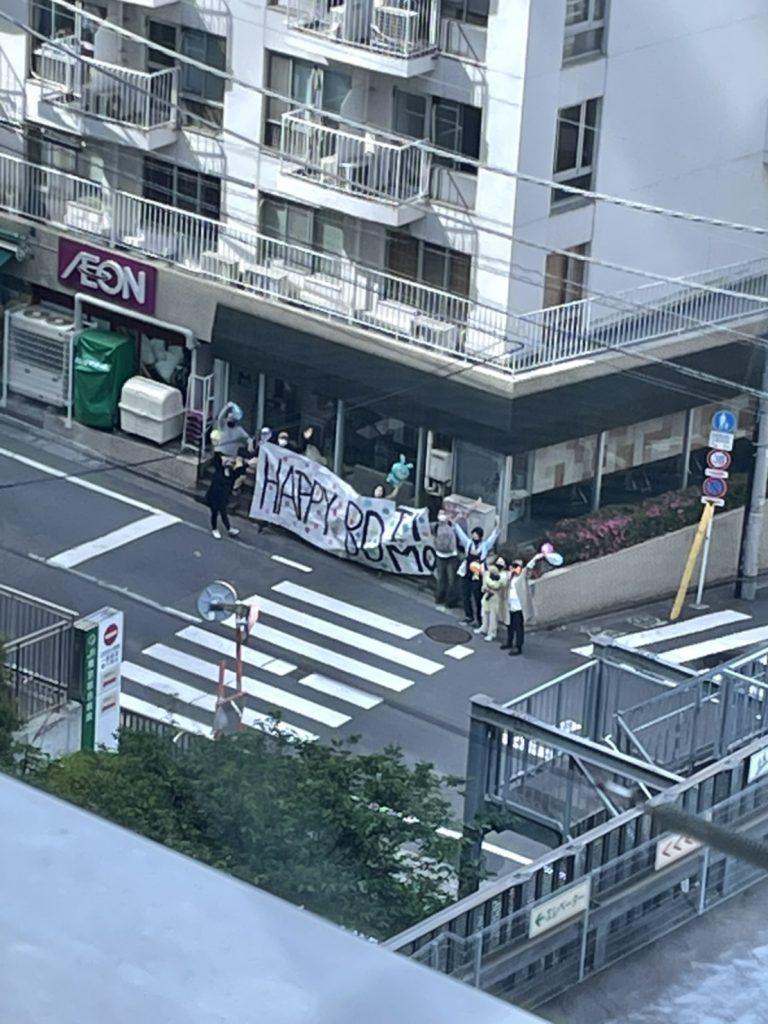
How has been your relationship with photography during this whole situation?
The relationship has been as weird as that whole experience. At first, I had no inspiration nor will or energy to do anything creative. I found this strange, as usually being creative is my way to feel better.
I have been documenting my journey in two different ways. One has been through social media, especially through Instagram Stories. It makes me feel connected to the ‘outside world’ and allows me to share my feelings and my mood to whoever cares.
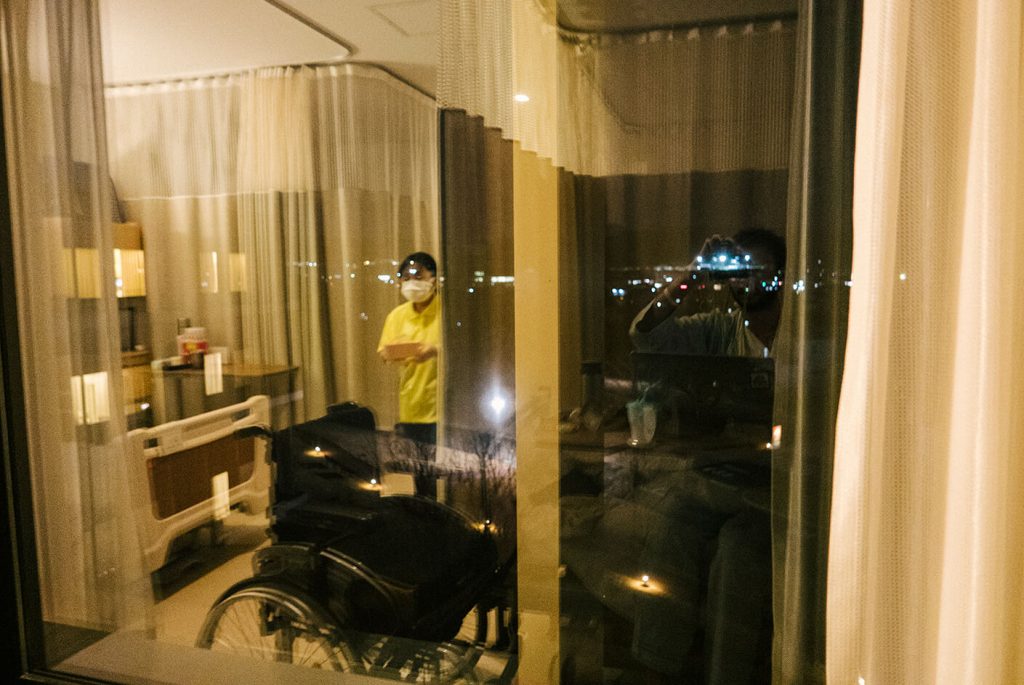
The other way of documenting my life at the hospital started when I got my hands on a camera a nurse found for me. First, I started taking pictures of things around me which I’d been staring at for such a long time while stuck on my bed.
Later, I was able to go outside my room in a wheelchair. At the first hospital, light was my biggest source of inspiration, perhaps because of the hospital’s architecture or my mood.
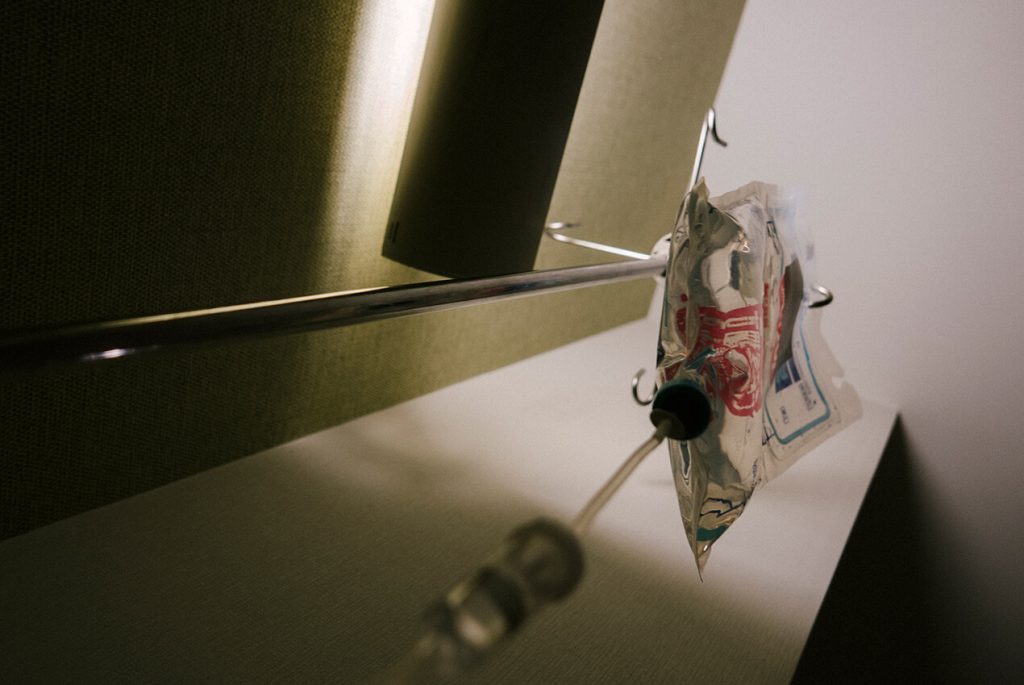
The second hospital felt a bit more hostile and old, because of the building and the age of the patients. I took less pictures, maybe more pictures of people.
In the Tokyo hospital, as I’m writing this, I haven’t figured out (yet) what inspires me. I’ve been busier with physical therapy and also maybe had enough of the hospital documentation.
The pictures have been a way of releasing anxiety by creating something, a way to pass time and keep me busy.
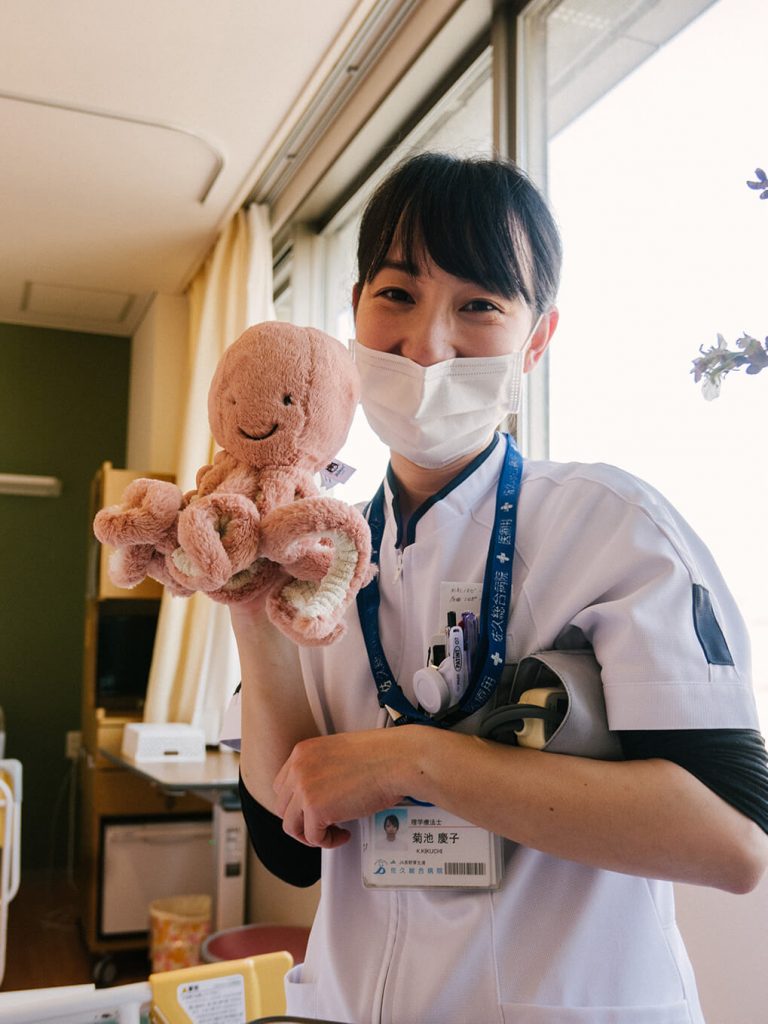
As you just explained, you have been using social media often. Even this has been different for you, am I right?
In my Instagram, I used to post pictures but I don’t write much, especially about my personal life. However, everything I’ve been posting from the hospital has been 100% personal. I’m sharing feelings that I’ve been having inside for quite some time. I feel the need to share them to feel lighter.
Because of my job as a photographer, I try to be coherent with what I post or what I want to show. In this situation, I just post how I feel because I need to, not thinking about the intention or the impact. I actually think that my window stories were boring, I got tired of them myself! [laughs].
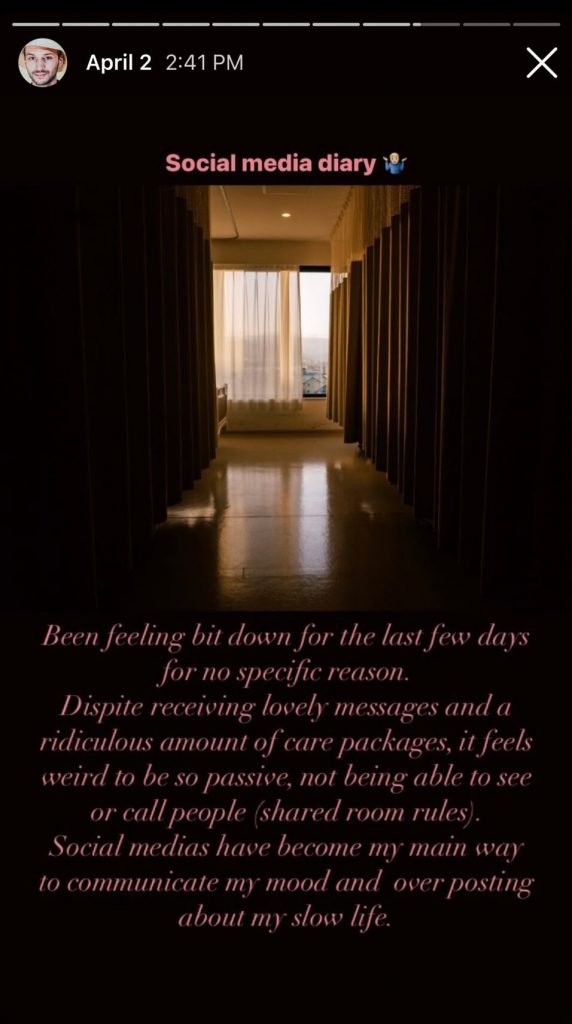
You have been creating ‘Hospital Diary’, a fanzine with the pictures you’re taking at the hospital. Tell me about it!
I’m preparing a simple fanzine with the documentation of my slow hospital life, with the help of my friends the graphic designers Ryota Kanno (@namaguerrilla) and Satoshi Sembon (@smbn3). This project will help me face the medical costs and also give a purpose to my time here.
I’m asking for a donation fee to get the fanzine or also a t-shirt, covering both the printing and the shipping fee plus an extra that will help me with the hospital bills.
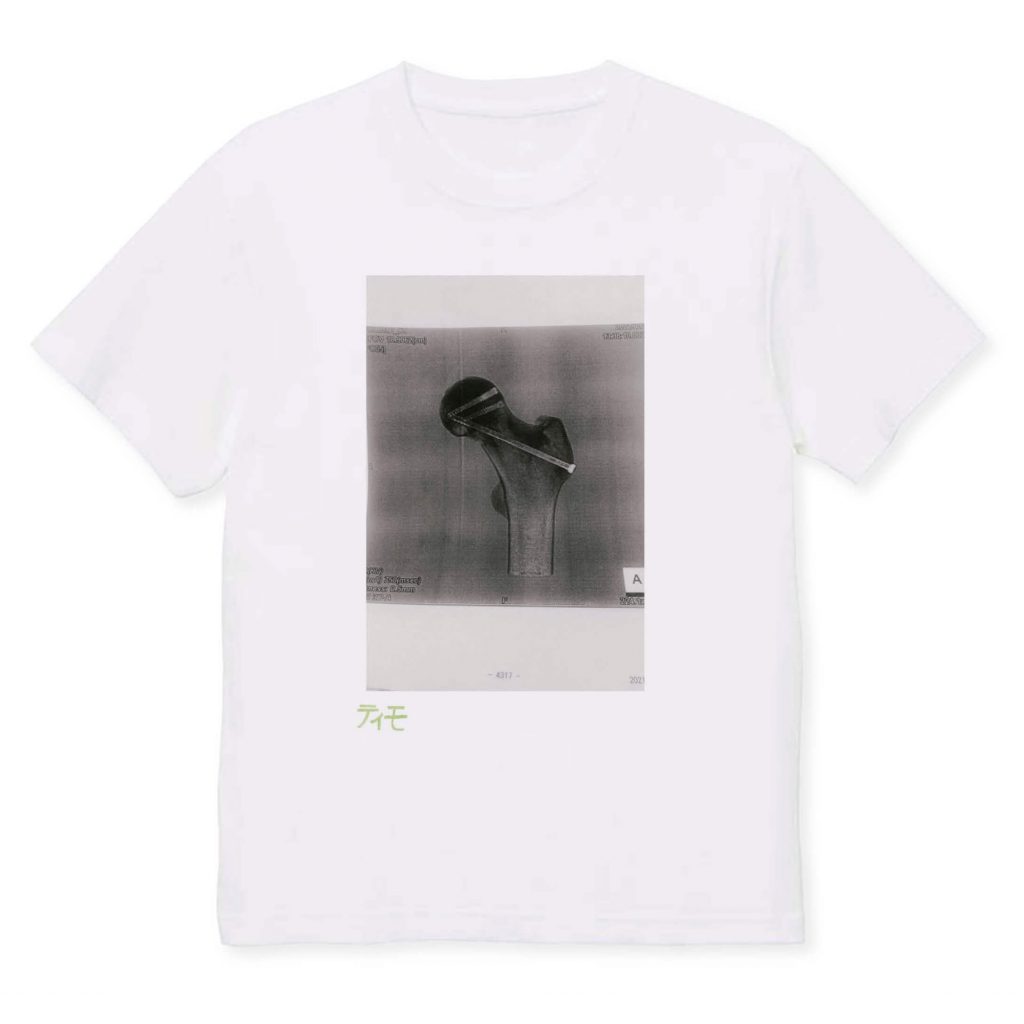
I’m a bit worried about this project. First, because I don’t like asking for money, but also because around this time I was supposed to have my first solo exhibition, and my first photo book released. I don’t want the two publications to ‘short circuit’ each other. My photo book condenses four years of work, the fanzine is just something that illustrates the weird experience I’m having now.
What do you want to do, on both a personal and professional level, when you are finally out from hospital?
It would be great and much needed to celebrate my exhibition and release my photo book. I need time to catch up, I want to know what I missed from everyone. I want to party, enjoy some junk food and fresh beer!
Also, I want to start working again, I miss shooting, having new projects, meeting new people …
Finally, do you feel that this experience has changed you?
Too soon to say, maybe it has taught me patience and many other things. I don’t know yet. I’m still in the fight!
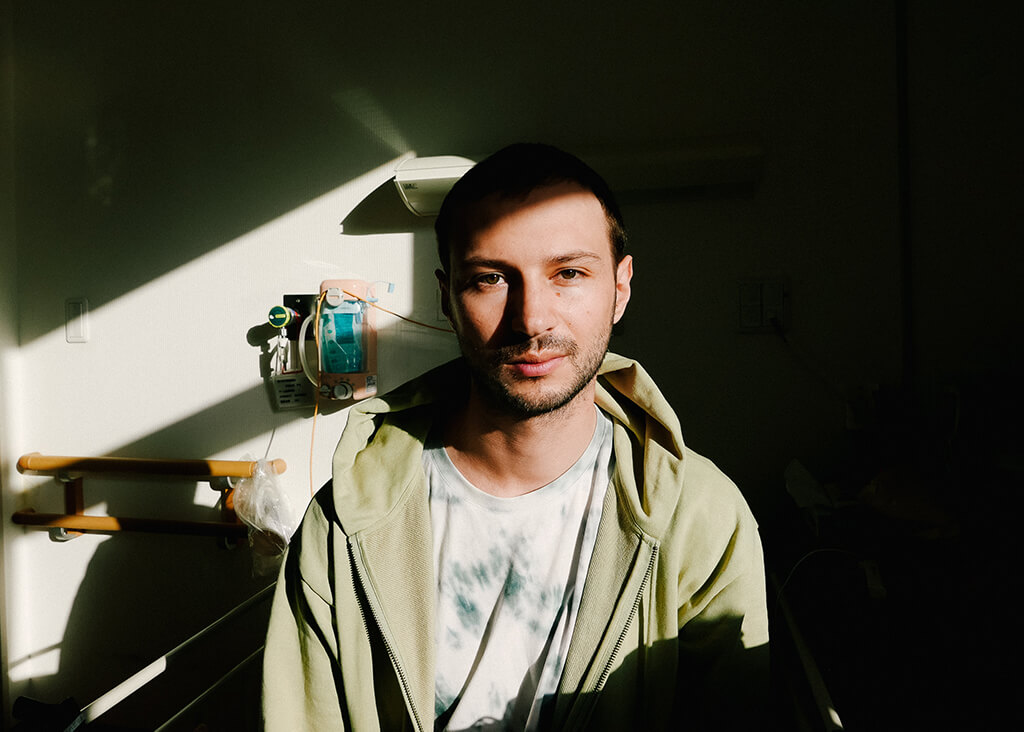
Get Timothée Lambrecq’s ‘Hospital Diary’ fanzine and help him with his medical costs.
Check Timothée Lambrecq’s website to see more of his photos and videos.
Follow Timothée Lambrecq (@moussti) on Instagram.
(っ˘̩╭╮˘̩)っ



